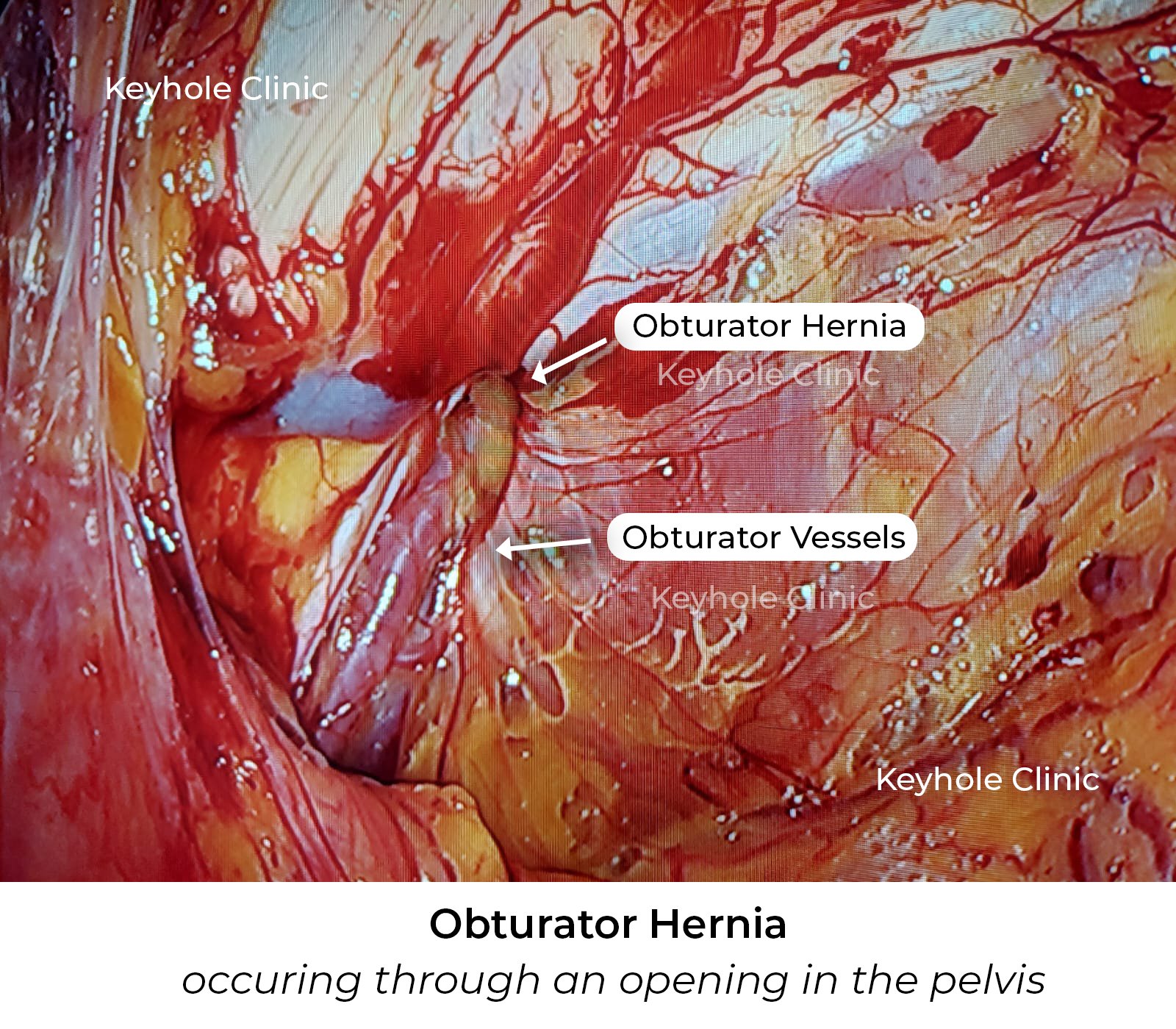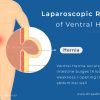Obturator Hernia
A hernia is caused when the abdominal contents protrude through a weak spot in the abdominal wall. An obturator hernia is a very rare type of hernia that occurs through an opening in the pelvis. An obturator hernia is caused when the intestine bulges through the obturator foramen. This type of hernia occurs in women particularly elderly women.
Obturator Hernia – Symptoms
Symptoms of Obturator hernia include:
- Bowel obstruction
- Abdominal bloating
- Pain
- Constipation
- Nausea
- Vomiting
Causes of Obturator Hernia
Aging can cause loosening of muscle mass and fatty tissue and the intestine enters the obturator canal. Multiple child birth and obesity can also cause obturator hernia. It can be diagnosed by imaging tests like CT scan, ultrasound scan or MRI scan of the abdomen.

Treatment
Obturator hernia can be treated with Laparoscopic surgery. The surgery is initiated by administering a dose of anesthesia to relax the patient and to reduce the pain and discomfort. The surgeon then makes a small incision in the abdominal wall and inserts a laparoscope to view inside of the abdominal cavity and associated organs. The surgeon makes few more incisions to insert two more instruments and the bulged tissues are pushed back and placed in position. Later a mesh is placed in the weak spot of the abdominal wall to prevent the possibility of reoccurrence of hernia. Later the incisions are closed with self dissolving sutures.
After the surgery, medications are administrated to reduce pain and discomfort of the surgery. The patient can leave the hospital in a day or two and resume normal life in a week’s time.
Advantages of laparoscopic hernia surgery include:
- Small incisions
- Lowers chance of infection
- Less postoperative pain
- Reduced hospital stay
- Minimal scars
- Faster recovery time
Hernia – Other Types
Inguinal Hernia
Inguinal hernia occurs when abdominal tissues, such as part of the intestine, protrudes through a weak spot of the inguinal canal. It can be classified into Indirect Inguinal Hernia, Direct Inguinal Hernia, Incarcenated Hernia, Strangulated Hernia
Inguinal HerniaHiatal Hernia
Hiatus hernia develops when the upper part of the stomach bulges through an opening in the diaphragm. The stomach pushes through the opening in the diaphragm and bulges into the chest.
Hiatal HerniaVentral Hernia
Ventral Hernia can occur in any location of the abdominal wall as a bulge of abdominal tissues through a weak opening in the abdominal wall muscles. When the intestinal tissue gets caught up in the bulge and cannot be pushed back it is called Stangulaged Ventral Hernia.
Ventral HerniaObturator Hernia
Obturator Hernia is a very rare type of hernia that occurs through an opening in the pelvis. The intestine bulges through the obturator foramen.
Obturator HerniaFemoral Hernia
Femoral hernia occurs in the groin junction when the tissues in the lower abdomen push through the upper thigh region.
Femoral HerniaUmbilical Hernia
Umbilical hernia occurs at the belly button (umbilicus). A loop of intestine pushes through the umbilical ring. in the groin junction when the tissues in the lower abdomen push through the upper thigh region.
Incisional Hernia
Incisional hernia occurs at the location of a previous surgical incision.
Videos Related to Hernia
| Topic | Watch |
|---|---|
| Malayalam - What is Hernia and Different Types of Hernia | Watch Video |
| English - What is Hernia and Different Types of Hernia | Watch Video |
About Dr. R. Padmakumar
Dr. R. Padmakumar is one of the Best Hernia Surgeon in India. He has been changing lives through Keyhole Surgery. He has got more than 30 years of hands-on experience in laparoscopic Surgery in major hospitals across India and has completed more than 7000 cases of Laparoscopic Hernia Surgeries. Dr. Padmakumar has trained more than 300 surgeons from all over the world the art of laparoscopic surgery especially Laparoscopic Hernia Surgery. Dr. Padmakumar is also hailed as one of the Best Bariatric Surgeon in India & UAE. He is renowned for new and improved treatment techniques and the first in the World to perform Scarless Bariatric Surgery with Tummy Tuck / Abdominoplasty. He is also one of the very few thyroid surgeons in India doing Endoscopic Thyroidectomy (scarless thyroid surgery).


-
Anal Fissure Treatment
- Piles / Hemorrhoids Treatment
- Varicose Veins Treatment
- Laser Treatment for Varicose Veins
- Diabetic Foot Treatment
- Gynaecomastia







